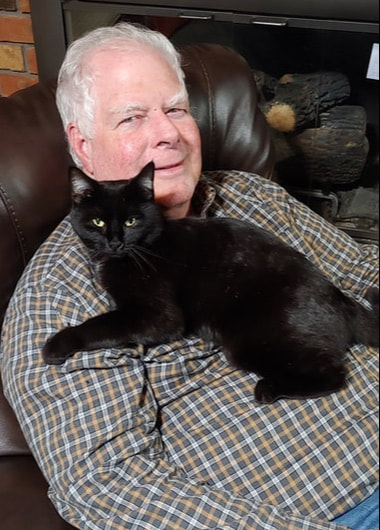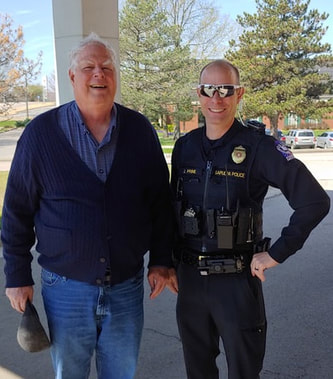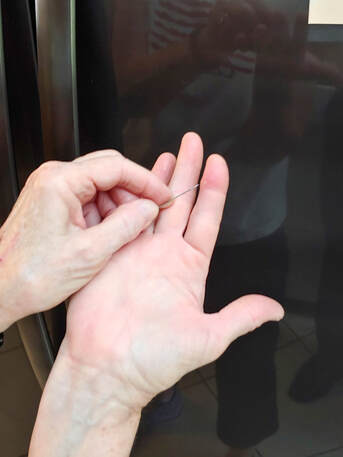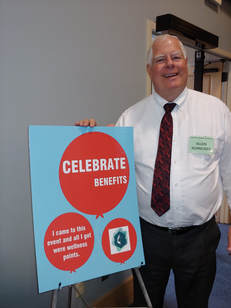|
May is National Mental Health Awareness Month. It is no secret that there has been a sharp increase in the number of cases of depression, anxiety, stress, family conflict, domestic violence (and the list goes on and on). The fact is that we are living in stressful times and many are having difficulty coping. While there are numerous strategies for dealing with mental/relational distress (and different approaches are meaningful to different people) one thing I would recommend is the simple act of: "Hanging Out With Friends." For me, an evening with a good friend can significantly help to reduce my anxiety and lift my spirits. I actually have several thoughts regarding this...
0 Comments
May is Mental Health Awareness Month. I doubt that this theme will be lifted up through our national news, still it is a time to spread the word as best we can. The fact of the matter is that the mental health of many has been challenged during this past year. Our struggle with covid-19 and the relational "fall out" from a hostile election have taken a toll on many. A physician friend of mine told me recently that many of her patients had suffered "set-backs" in their physical health over the past year. I believe that the professional counseling community would say that this has also been true for many regarding their mental health....
I greatly enjoyed our recent family trip to the aquarium. I've been there before but since we only go every two years or so I always find the exhibits to be extremely fascinating. As a "land dweller" and one who does not snorkel or scuba dive, it is easy for me to be generally unaware of what lies "under the surface" in the vast world we know as the ocean. Yet that is where so much of the life on our planet exists; generally unseen and in many ways ignored.
The human mind heart are a lot like this. We are all very aware of the thoughts that dwell (sometimes plague) our consciousness. Our behaviors can be seen by all; our words can be heard, our thoughts constantly clamor for our attention. But we all know that there is much more to "us" than what is seen or heard or even the thoughts of which we are aware. So much of who we are, in reality, lies below the surface.... The relationship between spirituality and mental health has long be an interest of mine. There are times when mental health professionals and the religious community seem to be at odds with one another. But it is always exciting to me when I see studies which reinforce the belief that spirituality and mental health are closely connected. So you can imagine my joy when I recently came across an article titled, "7 Scientifically Proven Benefits of Gratitude."
When our grey Honda Odysee reached 250,000 miles we decided it was time to buy a new one and we gave the old car to our son and his family. My son and daughter-in-law have two small children and we thought this would be a good "run around" back up vehicle for them. To my surprise they used this vehicle a great deal and kept it for several years. They also continued my practice of regular oil changes and regular preventative maintenance. Well, this approach apparently paid off. The other day my son sent me a picture of the odometer: the car had just reached 400,000 miles. These miles were all achieved with the original engine. Although there are no guarantees, preventative maintenance seems to be a strategy, in many cases, that works.
Recently my wife got a splinter in her hand. It was very small (difficult to see) and impossible for her to extract on her own. Still, this small object caused her some pain and great annoyance. She finally summoned my help to do some "surgery." Once we got it out she said, "I can't believe how much this small splinter has disrupted my day!" Her experience, however, confirms a principle that proves true in many areas of life.
While at the circus recently, I watched in amazement as 5 motorcycle riders zoomed around inside a cage doom. While the performance was going on I texted my son (along with a picture) and said, "these guys are crazy!" Obviously timing was essential. Each rider had to make his way around the doom at exactly the right time. I later asked someone, "how do they practice this?" I never got an answer to that question but one thing is clear: whether it is motorcycle doom riding or life in general, timing is important.
I recently attended the circus with my wife, daughter, and two grandchildren. I love the circus and enjoy watching the many displays of courage, talent, and skill. In most of the "acts" it was human talent that was on display, but several of them featured the skills of various animals. As I watched a giant elephant sit "gracefully" on a stool with a young lady riding on it's back, I wandered to myself, "How did they teach him (I guess it was a him) to do that?
I attended a "wellness" event recently; it was sponsored by our Methodist Conference as a part of their strategy to encourage self-care among clergy. By attending certain events, having an annual physical, and spending some time with a "fitness coach" we are able to see a reduction in our monthly health insurance rate. But beyond the financial benefit is the hope that healthier clergy will be a more effective clergy! Overall I've found the experience to be helpful and I've heard that many organizations are now offering these types of programs. It made me wonder, however, why preventative programs aren't offered to address one's mental health?
Suicide, it's a word that we've been hearing far too often lately. Anthony Bourdain and Kate Spade are two of the more recent names that have been in the news as a result of this epidemic. In fact the number of suicides in the US are reported to be up by 30% in recent years. Many are now dealing with the aftermath of loved ones or friends who have decided to take their own life. The reasons for suicide are many and that is not really the focus of my thoughts in this blog. Rather, how do we cope with the loss of a loved one who has chosen taken her or her life?
The three most common words that describe those I have known who have faced this situation are: lost, lonely, and longing. Lost is simply the sense of not knowing where to turn or what to do next. (Sort of like being stuck and not being able to move forward.) Lonely is the reality of grief and missing dearly the one who has left us.. (And as you can see from the Blog picture, even our pets experience the reality of grief.) The longing is a desire for understanding; a wish that somehow we could make sense of it all or see clearly what we could have done differently that might have prevented this tragedy. I'm sure other descriptive words could come into play, but these three embrace so much of what goes on in our mind following the suicide of a loved one. There is no easy path to recovery, but if you are currently dealing with the loss of a loved one there are a few things I can encourage: First, give yourself some time. Healing is not going to come over night. Confusion is not going to go away immediately. It takes a while for guilt to subside. There is no rule that says you have to heal quickly. Allow yourself to simply "be where you are" and take life one day at a time. Second, steer away from asking, Why? Why questions are a trap and the more you ask them the more you will fall into their snare. The fact of the matter is that most Why questions will not be answered on this side of eternity. We can guess and we can speculate but in reality there is only One who knows the intricacies of the human spirit and mind. Third, be forward thinking and proactive. Ask yourself, "What can I do now that would most honor the life of the one I have lost?" That may mean reaching out to others. It may mean being an advocate for a particular cause (ie. depression awareness or mental health funding). It may mean making a financial gift in memory of their name. It may mean making positive changes in your own life as tribute to their memory. Finally, be willing to talk. Talk to family members and talk to friends. Share the wonderful stories that you recall. Be honest about your grief and pain. Tell others about your plans to honor their life. But when it comes to the "dark" feelings, talk to a therapist about your anger and guilt. This is a tremendously better plan than playing the blame game with others. My prayer is that the suicide rate will sharply decline. The reality is that this tragedy, to some degree, will continue to be with us. If you are now experiencing the wake of such an awful event, my prayers are with you and you can be certain that I, or another therapist, I would be willing to walk with you through this journey. |
AuthorDr. Allen Schneider is a United Methodist pastor and a Licensed Marriage and Family Therapist presently serving the Sapulpa and greater Tulsa communities. Archives
March 2024
Category
All
|










 RSS Feed
RSS Feed